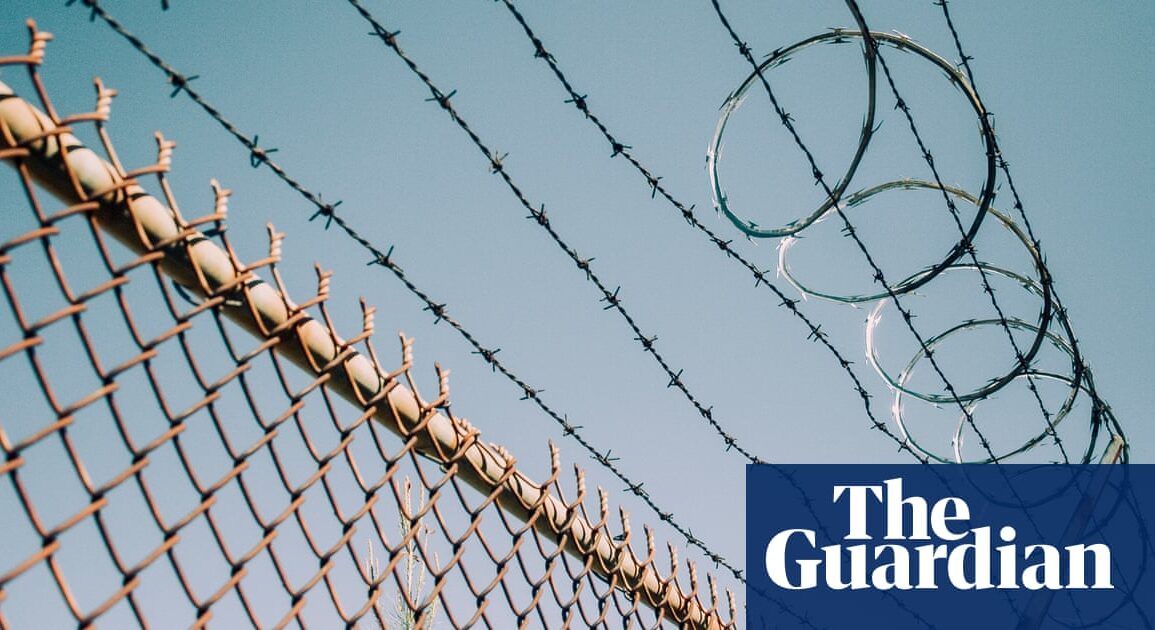
A lawsuit has been filed against the Alabama department of corrections (ADoC) alleging a guard encouraged prisoners to murder an activist currently incarcerated at the Limestone correctional facility in Harvest, Alabama.
The complaint alleges a lieutenant correctional officer encouraged other prisoners to murder Robert Earl Council, a lead organizer in the 2022 Alabama prison strikes. “Even if y’all killed him, I’ll make sure nothing happens to y’all,” Jeremy Pelzer told Crips gang members at Limestone prison in June, according to the suit.
“I want Robert Council … I’m tired of this bastard and all his lawsuits,” Pelzer allegedly told another prisoner in 2019.
Council is at “a substantial risk of being assaulted or murdered by Lt Jeremy Pelzer, other Limestone correctional facility (‘Limestone’) officers, or inmates who act at their behest, and who have constant access to the solitary confinement cell where Plaintiff Council is housed at Limestone”, according to the suit, filed in Alabama this month. An evidentiary hearing is scheduled for 30 November.
The US Department of Justice has sued Alabama’s prison system over widespread violence in its prisons, excessive use of force, severe overcrowding and understaffing in violation of the US constitution’s ban on cruel and unusual punishment. Prisoners have documented widespread negligence of medical care, and the number of prison deaths in Alabama has soared in the past two years.
Alabama prisons are the deadliest in the US and conditions have only worsened since the justice department began pursuing action against the state.
The lawsuit seeks preliminary relief from the retaliation Council is alleging and to transfer him to a different prison for his safety and out of long-term solitary confinement. He has been in solitary confinement since 15 October.
Limestone, a maximum-security facility, is the largest prison in the Alabama state system, with a capacity of 2,086 prisoners.
“Limestone has a decade-long and ongoing pattern and practice of imposing solitary confinement without due process,” the lawsuit alleges. As an example, the lawsuit cites the two-and-a-half-year-long solitary confinement of prisoner Juan Caples from January 2021 to October 2023.
“The purpose of filing the lawsuit is to draw attention to the ADoC’s direct targeting of organizers who are working inside the ADoC. It’s to highlight and bring a stop to the direct targeting of inside organizers,” said Andrew Menefee, a civil rights attorney representing Council. “Organizers who are working on the inside to bring attention to ADoC’s corruption should be granted whistleblower protection to prevent the dehumanization and murder of those who come forth to speak out.”
Council has been imprisoned at Limestone since 2019, where the lawsuit notes he has filed or assisted in filing numerous lawsuits and grievances about abuses within the Alabama department of corrections and retaliation he and other prisoners have experienced for speaking out against the rampant issues within Alabama’s prisons.
The lawsuit also alleges correctional officers routinely use fabricated disciplinary hearings to cover up abuses, and includes testimony from two other people incarcerated there who echo allegations of excessive force.
Council, who goes by the moniker “Kinetic Justice”, has for years led hunger strikes and peaceful actions against solitary confinement, retaliation and abuse within Alabama’s prisons.
He could not be reached for comment, but in 2022 Council said: “They’re not providing us with any adequate medical treatment [or] mental health treatment. We’re not getting proper diets, we’re not getting any kind of rehabilitation in these places.”
The lawsuit cites numerous allegations of retaliation and assault, including an incident in January 2021 where beatings by four correctional officers led Council to lose consciousness and caused permanent blindness in his left eye. It also states that the ADoC’s internal review board had recommended Council be transferred from Limestone for his own safety, but that recommendation was never fulfilled.
In October 2023, the lawsuit alleges, Council was pepper-sprayed and placed in solitary confinement based on a charge by correctional officers that he violated social media use policy within prisons, but the lawsuit claims the charges were known to be fabricated as the cited evidence was a three-year-old video at a different prison.
“If prior practice is any indication, ADoC will soon move to reclassify Plaintiff Council into ‘closed custody’, placing him in solitary confinement for six to 18 months,” alleged the lawsuit.
The lawsuit cited several other threats from correctional officers toward Council that included or alluded to his assault or murder.
While solitary confinement is legal in the US, criminal justice reform advocates have sought to limit or end its use. Several states have enacted laws restricting the use of solitary confinement and limiting its consecutive use.
According to estimates from the non-profit Solitary Watch, around 6.3% of the US prison population – about 81,000 people – were locked in solitary confinement in state or federal prison on any given day in 2019. UN Human Rights experts have criticized prolonged use of solitary confinement, defined as lasting 15 or more consecutive days, as “psychological torture”.
“Solitary confinement is a moral catastrophe. UN experts have condemned solitary as psychological torture – and that’s exactly what it is. This practice is traumatic for people subjected to it, harmful to communities and isolating for loved ones. Moreover, it is disproportionately inflicted on Black and brown folks, young people, LGBTQ+ people and other marginalized communities,” said the congresswoman Cori Bush, who has introduced legislation to end solitary confinement in US federal prisons.
The Alabama department of corrections declined to comment on Council’s lawsuit and the allegations, citing policy for the department not to comment on pending litigation.
Prisoners across Alabama’s 13 state prisons went on strike for three weeks from their prison work duties in September 2022 in protest of the poor conditions, with the strike ending as prisoners grew concerned over retaliation.
This post was originally published on this site be sure to check out more of their content.









